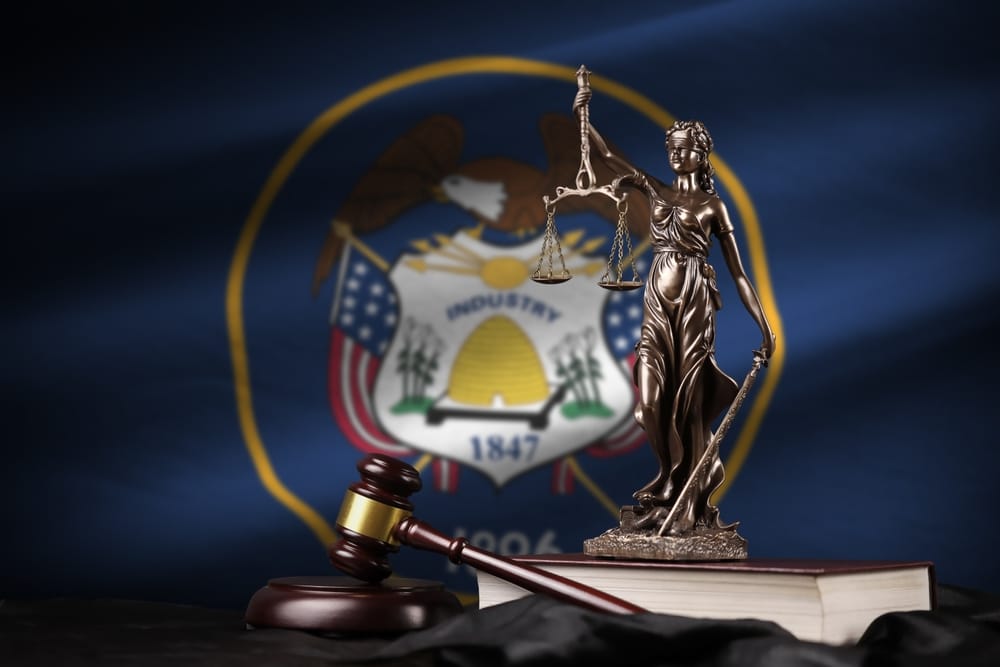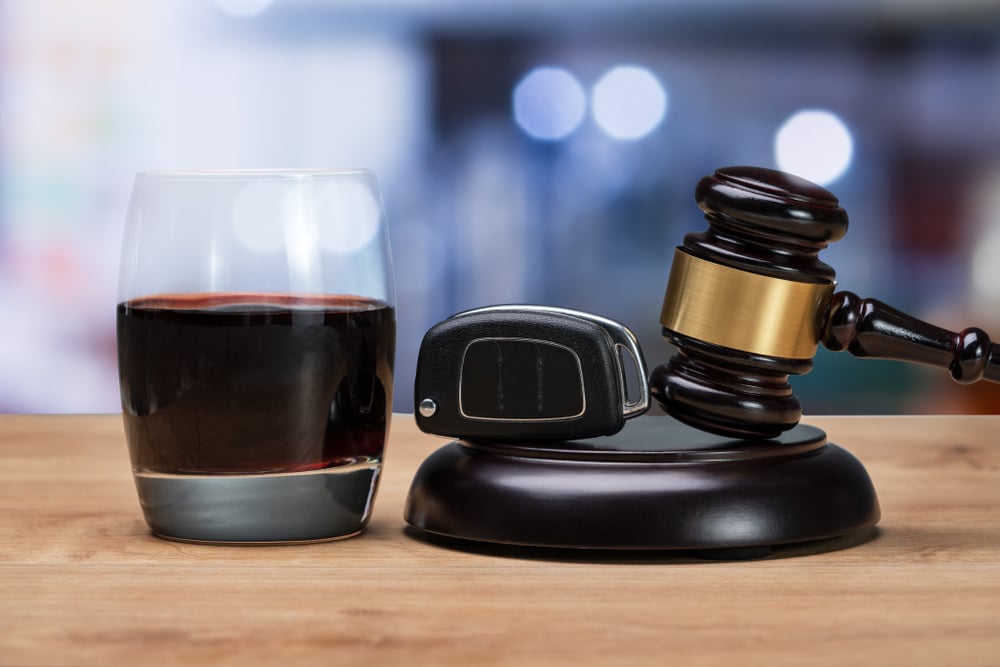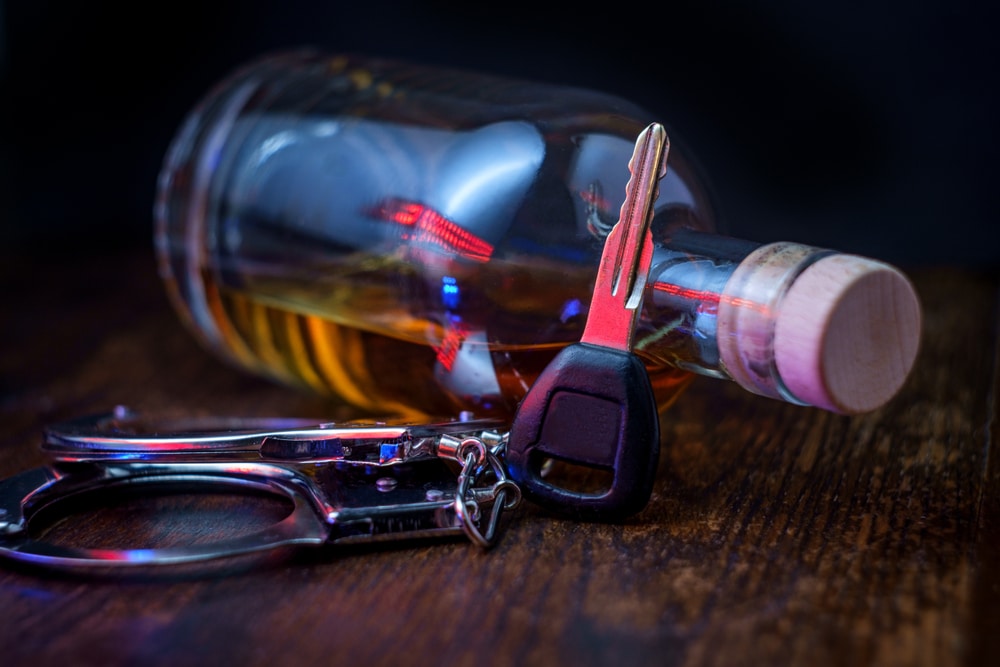
Utah has established itself as having some of the strictest DUI laws in the nation, most notably by implementing the lowest blood alcohol concentration (BAC) limit in the United States at 0.05%. This groundbreaking legislation, enacted in 2018, demonstrates Utah’s aggressive stance on impaired driving prevention. The state maintains a “zero tolerance” policy for drivers under 21 and commercial drivers face even stricter regulations.
The state’s unique demographic and cultural characteristics, including a large population that abstains from alcohol consumption, have influenced its approach to DUI enforcement and prevention. Utah’s geography, with its mix of urban and rural areas, presents distinct challenges for law enforcement and requires specialized enforcement strategies across diverse terrains and populations.
Utah’s commitment to traffic safety has resulted in consistently lower rates of alcohol-related fatalities compared to national averages, though impaired driving remains a significant public safety concern. The state’s comprehensive approach combines strict enforcement, public education, and rehabilitation programs.

0.05% or higher

Yes

120 days

Conditional

Yes (0.16%+)
Utah’s DUI enforcement strategy employs a multi-agency approach, coordinating efforts between state police, local law enforcement, and specialized DUI enforcement units. Officers are granted broad authority to conduct traffic stops based on reasonable suspicion of impaired driving and may establish checkpoints following specific statutory requirements. The state’s low BAC limit of 0.05% has expanded officers’ ability to make arrests based on lower levels of impairment.
Law enforcement agencies maintain dedicated DUI squads and participate in various high-visibility enforcement campaigns throughout the year. These efforts intensify during high-risk periods such as holidays and special events. The state also implements regular sobriety checkpoints and saturation patrols, particularly in areas with higher concentrations of alcohol-serving establishments.
Inter-agency cooperation plays a crucial role, with state and local law enforcement working alongside federal partners and neighboring jurisdictions to create a comprehensive enforcement network. This coordination extends to shared resources, training programs, and information systems.
Utah’s DUI penalties follow a graduated system that becomes progressively more severe for repeat offenders. First-time offenders face minimum jail time of 48 hours or 48 hours of community service, fines and surcharges totaling at least $1,380, and license suspension for 120 days. The installation of an ignition interlock device is mandatory for all convicted offenders, even on first offense.
Second offenses within ten years carry mandatory minimum jail time of 240 hours or 240 hours of community service, fines and surcharges of at least $1,560, and license suspension for two years. Third and subsequent offenses are classified as third-degree felonies, carrying potential prison terms of up to five years and substantially higher fines.
The state employs a robust administrative license suspension program that operates independently of criminal proceedings. Drivers who fail or refuse chemical tests face immediate license suspension through administrative action, with refusal penalties lasting up to 36 months for repeat offenders.
Utah law provides for enhanced penalties in cases involving aggravating circumstances. Driving under the influence with a passenger under 16 years old results in additional charges and increased penalties. Cases involving serious injury (known as DUI with serious bodily injury) or death (automobile homicide) are prosecuted as felonies with substantial prison terms.
Commercial drivers face particularly severe consequences, with BAC limits set at 0.04% and the potential for lifetime commercial driver’s license disqualification after multiple offenses. The state also imposes enhanced penalties for high BAC levels (0.16% or higher) and for drivers who refuse chemical testing.
Multiple offenders face mandatory treatment requirements, extended supervision periods, and possible vehicle forfeiture. The presence of drugs, even legal prescriptions, can result in additional charges and complications in both criminal and administrative proceedings.
Utah law enforcement employs a variety of methods to detect and apprehend impaired drivers. Officers receive specialized training in standardized field sobriety testing (SFST) and advanced roadside impaired driving enforcement (ARIDE). The state maintains a significant number of drug recognition experts (DREs) who are specially trained to identify drug impairment.
Enforcement activities include regular patrols, sobriety checkpoints, and saturation patrols in high-risk areas. The state utilizes a combination of marked and unmarked vehicles, and officers are equipped with both in-car and body-worn cameras to document interactions with suspected impaired drivers.
The state’s “24/7 Sobriety Program” provides additional monitoring options for courts and prosecutors, requiring repeat offenders to submit to twice-daily breath tests or continuous alcohol monitoring as a condition of pre-trial release or probation.
Utah employs state-of-the-art technology for detecting impaired drivers. This includes evidential breath testing devices, blood testing facilities, and preliminary breath testing devices for roadside screening. The state maintains strict calibration and maintenance protocols for all testing equipment to ensure accuracy and reliability of results.
Recent technological advances include the implementation of oral fluid testing devices to detect drug impairment and the use of advanced analytics to identify patterns of impaired driving. The state’s toxicology laboratory employs sophisticated testing methods to detect both alcohol and drugs, including prescription medications and illegal substances.
Electronic warrant systems allow officers to quickly obtain blood draw warrants when chemical tests are refused, particularly during “no refusal” enforcement periods. Mobile command centers equipped with breath testing equipment and phlebotomists are deployed during major enforcement operations.
Utah maintains a comprehensive network of approved substance abuse treatment providers offering various levels of care for DUI offenders. Programs range from educational courses for first-time offenders to intensive outpatient and residential treatment for those with severe substance use disorders.
Treatment programs incorporate evidence-based practices including cognitive behavioral therapy, motivational interviewing, and trauma-informed care. Many programs offer specialized tracks for different populations, including young adults, veterans, and individuals with co-occurring mental health disorders.
Successful completion of treatment programs is typically required for license reinstatement and may be mandated as a condition of probation. The state maintains oversight of treatment providers through licensing requirements and regular program evaluations.
The state operates under a structured mandatory treatment framework that matches offenders with appropriate levels of intervention based on risk and needs assessments. First-time offenders must complete a state-approved DUI education program, while repeat offenders are required to undergo more intensive treatment programs.
Assessment and screening protocols help determine the appropriate level of treatment, considering factors such as BAC level, prior offenses, and substance use history. The framework includes regular progress monitoring, drug and alcohol testing, and coordination between treatment providers and supervision authorities.
Treatment plans typically include both individual and group counseling, educational components, and may incorporate family therapy or other support services. Progress in treatment is regularly reported to courts and probation officers, with consequences for non-compliance.


Utah employs various monitoring systems to ensure offender compliance with court orders and treatment requirements. These include regular reporting to probation officers, random drug and alcohol testing, and electronic monitoring devices. Ignition interlock devices with GPS capabilities and cameras provide real-time monitoring of compliance.
The state’s supervision system includes a graduated sanctions model for addressing violations, allowing for swift and certain responses to non-compliance. High-risk offenders may be required to participate in intensive supervision programs with increased monitoring and reporting requirements.
Various agencies coordinate to track compliance through shared databases and regular communication between courts, treatment providers, and supervision authorities. The state also maintains specialized DUI courts that provide enhanced monitoring and support for high-risk offenders.
The administrative process begins at the time of arrest, with officers seizing the driver’s license and issuing a temporary permit. Drivers have 10 days to request an administrative hearing to contest the license suspension. The process operates independently of criminal proceedings and focuses solely on license-related sanctions.
The Driver License Division manages license suspensions, restrictions, and reinstatements, including the implementation of ignition interlock requirements. Administrative hearings are conducted by hearing officers who review evidence of the arrest and chemical test results or refusals.
Successful navigation of the administrative process requires attention to strict deadlines and compliance with various requirements, including completion of substance abuse assessments, treatment programs, and payment of reinstatement fees.
Administrative procedures involve coordination between multiple agencies and require careful attention to timelines and documentation requirements. The process includes scheduling and conducting administrative hearings, processing license actions, and maintaining records of compliance with various requirements.
Drivers must satisfy numerous conditions for license reinstatement, including completion of required programs, installation of ignition interlock devices when mandated, and payment of various fees and fines. The state maintains strict protocols for processing and tracking these requirements.
Appeal procedures are available for adverse administrative decisions, though they must be initiated within specified timeframes. The state also provides procedures for requesting limited licenses for work or essential household duties during suspension periods.
DUI cases proceed through Utah’s court system following established criminal procedures. Cases begin with arraignment, followed by pre-trial conferences, motion hearings, and either plea negotiations or trial. Some jurisdictions maintain specialized DUI courts that focus exclusively on impaired driving cases.
Courts must follow specific protocols regarding the admission of evidence, particularly concerning chemical test results and expert testimony. Defendants have various procedural rights, including the right to challenge evidence, question witnesses, and appeal convictions.
The court process often involves coordination with multiple agencies, including probation, treatment providers, and the Driver License Division. Judges have discretion in imposing sentences within statutory guidelines and may consider various factors including prior offenses, BAC level, and treatment needs.
Several state agencies play crucial roles in Utah’s DUI enforcement and administration:
– Utah Driver License Division: Manages licensing actions and administrative hearings
– Utah Highway Patrol: Primary enforcement agency for state highways
– Department of Public Safety: Oversees various aspects of DUI enforcement and prevention
– State Bureau of Investigation: Maintains crime laboratories and provides technical support
– Department of Health: Licenses treatment providers and oversees substance abuse programs
These agencies work together through various coordination mechanisms and shared information systems to ensure comprehensive program implementation.
Utah participates in the Driver License Compact, sharing DUI conviction information with other states. Out-of-state convictions count toward total offenses in Utah, and the state honors other states’ license suspensions. Commercial drivers face federal regulations that apply across state lines.
The state’s unique BAC limit of 0.05% creates special considerations for drivers from other states, particularly in border areas. Utah maintains protocols for handling cases involving out-of-state drivers and coordinates with neighboring jurisdictions on enforcement efforts.
Interstate cooperation extends to information sharing, enforcement operations, and coordination of treatment requirements for offenders who move between states.
Utah law enforcement must navigate various jurisdictional considerations, including:
– Tribal lands and sovereign nation territories
– Federal lands including national parks and military installations
– Multi-jurisdictional task forces and enforcement operations
– Coordination with neighboring states
Special agreements and protocols govern enforcement activities in these areas, often requiring coordination between multiple agencies and jurisdictions.
DUI offenses generate substantial economic costs for both offenders and the state. Individual offenders face immediate expenses including fines, court costs, attorney fees, and increased insurance premiums. Additional costs may include ignition interlock devices, treatment programs, and lost wages due to license suspension or incarceration.
The state incurs significant costs related to enforcement, court operations, incarceration, and supervision of offenders. These expenses are partially offset by fines and fees but represent a considerable burden on public resources.
The total economic impact includes both direct costs and indirect expenses such as lost productivity, healthcare expenses, and property damage from alcohol-related crashes.


The societal impact of DUI extends beyond direct economic costs. Alcohol-related crashes result in deaths, injuries, and property damage that affect families and communities. Healthcare costs, emergency services, and long-term care for injury victims contribute to the overall societal burden.
Lost productivity, increased insurance rates, and strain on social services represent additional societal costs. The state invests heavily in prevention and education programs aimed at reducing these impacts.
The emotional and psychological impact on victims, families, and communities creates lasting effects that are difficult to quantify but represent significant societal costs.
Utah continues to evaluate and update its DUI laws and procedures. Current trends include:
– Evaluation of the 0.05% BAC limit’s effectiveness
– Expansion of drug-impaired driving detection methods
– Enhancement of monitoring technologies
– Strengthening of treatment requirements
– Integration of new enforcement technologies
The legislature regularly considers proposals to enhance enforcement capabilities and strengthen penalties for repeat offenders.
Utah increasingly incorporates advanced technologies in DUI enforcement and monitoring:
– Electronic warrant systems
– Real-time data sharing between agencies
– Advanced alcohol monitoring devices
– Automated license plate readers
– Predictive analytics for enforcement deployment
These technological advances improve detection capabilities and streamline administrative processes while maintaining constitutional protections.
Current challenges and emerging issues include:
– Addressing drug-impaired driving
– Implementing new testing methods
– Managing ride-sharing impacts
– Adapting to autonomous vehicle technology
– Addressing privacy concerns with monitoring technologies
The state continues to adapt policies and procedures to address these evolving challenges.
Utah maintains comprehensive prevention and education initiatives:
– School-based education programs
– Public awareness campaigns
– Professional driver education requirements
– Server training programs
– Community-based prevention initiatives
These programs receive both state and federal funding and are regularly evaluated for effectiveness.
DUI convictions can have significant professional impacts:
– Commercial driver disqualification
– Professional license consequences
– Employment restrictions
– Background check implications
– Insurance requirements for work vehicles
Some professions have mandatory reporting requirements and specific protocols for handling DUI convictions.
Utah regularly evaluates treatment program outcomes:
– Recidivism rates by program type
– Cost-effectiveness analysis
– Long-term success indicators
– Program completion rates
– Factors influencing treatment success
Results inform program modifications and resource allocation decisions.
DUI convictions significantly impact insurance coverage and costs:
– Mandatory SR-22 insurance requirements
– Premium increases lasting 3-5 years or longer
– Potential policy cancellations
– High-risk insurance requirements
– Commercial insurance implications
Insurers may require additional monitoring or restrictions for coverage after DUI convictions.


Utah requires SR-22 insurance certificates for DUI offenders:
– Minimum three-year requirement
– Increased liability coverage requirements
– Immediate notification of policy changes
– Strict compliance monitoring
– Penalties for lapses in coverage
SR-22 requirements apply to both owned and non-owned vehicles and must be maintained even if the offender moves to another state.
DUI convictions create numerous challenges for offenders:
– Transportation difficulties during suspension
– Employment limitations
– Housing restrictions
– Travel restrictions
– Financial strain
– Social stigma
Support services and resources are available to help offenders address these challenges and maintain stability during the recovery process.
Utah maintains one of the nation’s most comprehensive and strict DUI enforcement systems, highlighted by its pioneering 0.05% BAC limit. The state’s approach combines aggressive enforcement with substantial treatment and rehabilitation opportunities, while addressing emerging challenges through regular policy updates and technological innovations.
The economic and societal impacts of DUI remain significant, driving continued investment in prevention, enforcement, and treatment programs. Success requires coordination between multiple agencies and stakeholders, along with ongoing evaluation and adaptation of programs and policies.
The state’s commitment to reducing impaired driving is reflected in its comprehensive approach to enforcement, treatment, and prevention. This includes maintaining strong penalties while providing opportunities for rehabilitation and recovery. Regular program evaluation and policy updates ensure the system continues to evolve and improve.
Future developments will likely focus on addressing emerging challenges such as drug-impaired driving and new vehicle technologies, while maintaining effective existing programs and procedures. The state’s experience with the 0.05% BAC limit may influence other jurisdictions considering similar measures.
Utah’s approach demonstrates the importance of combining strict enforcement with comprehensive support services and rehabilitation opportunities. The state’s success in reducing alcohol-related traffic incidents suggests that this balanced approach, while demanding for offenders, effectively promotes public safety while providing paths to recovery.
At DUI 101, our mission is to empower you with the knowledge needed to make informed decisions during this challenging time. Explore our articles and guides to better understand your situation and the steps ahead.
© 2024 Chapman SEO LLC. This website is for educational and informational purposes only. All content is created using AI technology and maintained by non-lawyers and should not be considered legal advice. The information provided is general in nature and may not be suitable for your specific situation. Always consult with a qualified legal professional for advice regarding your individual circumstances. We do not create attorney-client relationships through this website. By using this site, you acknowledge that you have read and understand these terms.